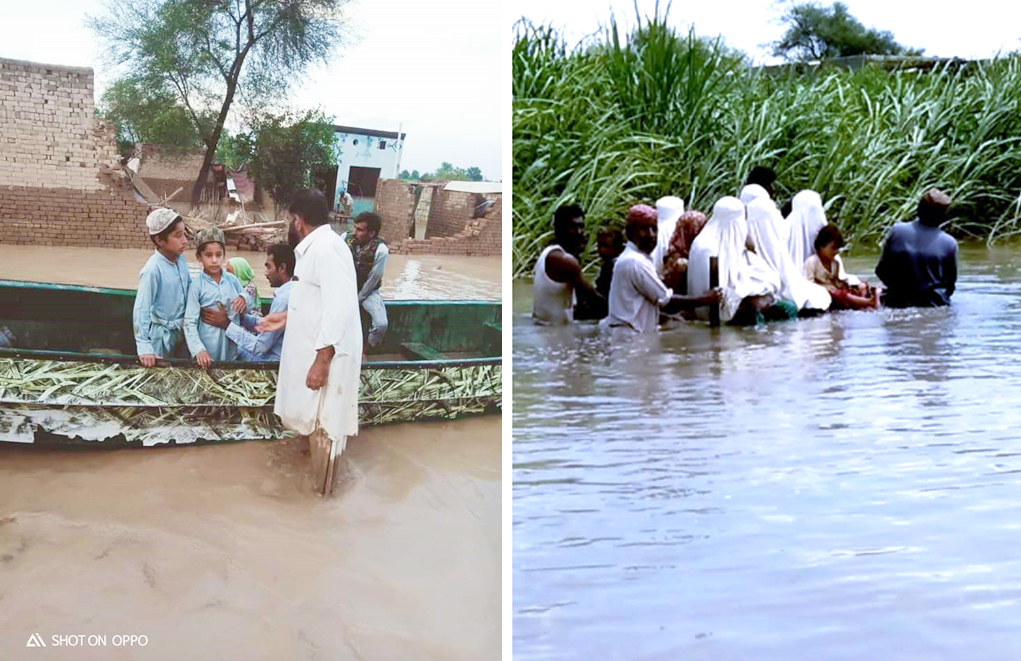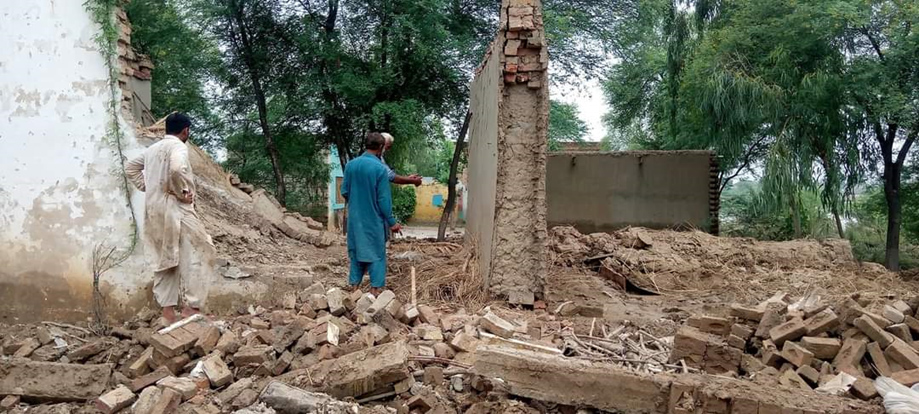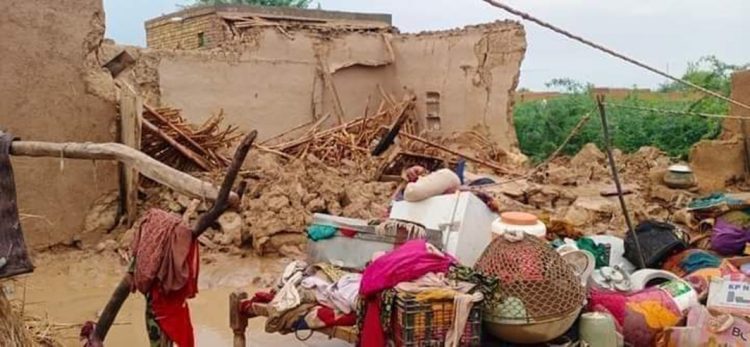Disasters caused by climate change are more noticeable than ever!
More than twice as much rain as in usual monsoon seasons, in southern regions even four times as much, has fallen in Pakistan in recent weeks. The country has been hit by some of the worst flooding in decades, with a third of the country under water. The extreme climate change induced devastation has affected some 33 million people and led to the deaths of more than 1.396 people in the past two months.Unprecedented climate events took place in Pakistan in 2022. Extreme temperature changes early in the year, severe heat waves in the summer months, and the melting of the numerous glaciers in the mountainous regions of Pakistan due to heat waves led to a sharp rise in water levels. This was followed in mid-June by an early monsoon that lasted for more than two months.

All this was compounded by downpours in the north of the country in the last weeks of August. The resulting river floods are slowly spreading along the length of more than 3.180 kilometers of the Indus River, inundating vast land masses. Even more areas will be flooded before the raging waters reach the Arabian Sea. To make matters worse, the monsoon season is not over yet and another rainy period is expected within the next two weeks.
The devastation across the country is of epic proportions
More than 1.396 people have died and more than 12.728 people were injured. A total of 1.743.345 homes were damaged, including 568.817 completely destroyed and 1.174.528 partially damaged. More than 750.223 cattle died. 18.590 schools were completely or partially destroyed.
Most flood affected areas stand in about one meter of water and people are forced to seek refuge in temporary shelters along roads and highways. Household food and grain stocks have completely disappeared and fallen victim to the floods.
The climate displaced people lack food, clean drinking water and the basic necessities of life.
“The situation on the ground is truly heartbreaking. I have families coming to me saying this is the first meal they’ve had in days,” says Zubair Kazi, an aid worker leading emergency relief efforts in Sukkur and Jacobabad. “Homeless families are surviving on roadsides and in open areas surrounded by contaminated water. We don’t know how long this will last.”

One massive climate change disaster is that Pakistan has contributed less than 0.4% to total global carbon emissions since 1959. Yet the entire country is bearing a brunt of climate change.
As we watch, the situation is turning into a humanitarian disaster. The lack of food, clean water and sanitation, in addition to the devastating floods, are having a dramatic impact on the health of the affected people.
The UN and the Government of Pakistan have jointly launched an emergency appeal for $160 million for urgent life-saving needs, including:
Education, Food Security and Agriculture, Health, Nutrition, Shelter, Shelter/Non-Food Items (NFI), Water and Sanitation (WASH).
The flood affected population urgently needs everyone’s support to save lives and rebuild their homes.





